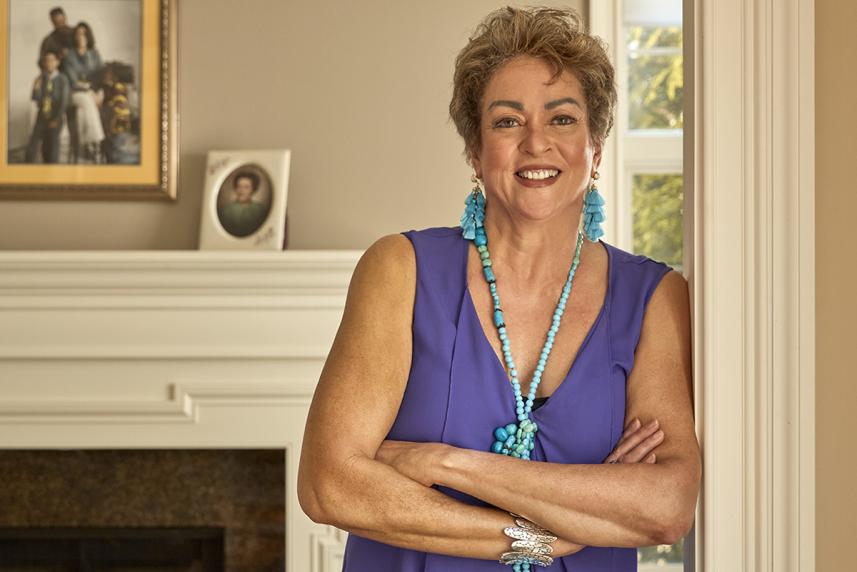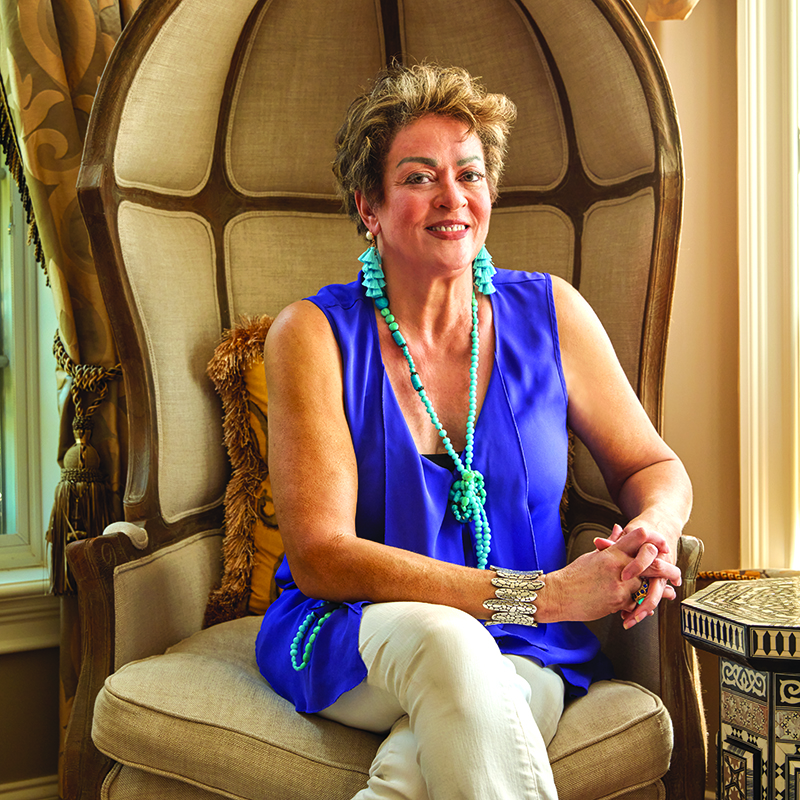Being your own health advocate
Having a strong care team you trust can make all the difference between living in uncertainty and feeling empowered

Some people are just born to be storytellers, and Lisa Thomas-Laury is one of them. Growing up in West Virginia, everything that caught her imagination ended up in the plays she wrote, which her classmates performed to thunderous applause. “I loved to write,” she recalls. “And I always figured I’d be a writer one day. But in fourth grade, that plan changed. Our teacher would let us watch the TV news during lunch, and the newscaster — one of the first women anchors — had the same name as me. I took that as a sign.”
Fast-forward to her freshman year at Marshall University in Huntington, West Virginia. Lisa got a part-time job as “weather girl” at the local TV station, and from there it was a short hop to becoming a cub reporter. “They gave me a 36 mm camera and a car and told me to go out on my own and film stories.” By the time she graduated, she had lots of job offers to choose from. She’d fallen in love with being on the air.
In 1978, she landed at Channel 6 News in Philadelphia, where she spent the rest of her career. “I loved the reporting,” she recalls. “It was so much fun to go into the neighborhoods, find the stories, and build them from scratch.”
And once she’d dropped her West Virginia twang and learned to pronounce ”Conshohocken,” she was an ace at the anchor desk, too.
The tough road ahead
Along the way, she also built a wonderful family — her husband, physician Bill Laury, and sons Langston and Leland. “It wasn’t always easy,” she recalls, “but those years were really good.” In the summer of 2001, though, she noticed that her ankles felt weak while she was walking. “Eventually a test showed I’d lost 30% of my strength below the knee.” Within a few years, she was wheelchair-bound and had difficulty walking and speaking.
But getting to the root of the problem was a challenge. With her husband’s help, she finally got the correct diagnosis and started treatment. Lisa had POEMS syndrome, a rare blood disorder. “At first, I was misdiagnosed, but my husband asked the right questions that led me to the Mayo Clinic in Minnesota and saved my life.”She had a bone marrow transplant there in 2004, right before her 50th birthday. “The results were remarkable,” she says.
Afterward, Lisa returned to Channel 6 and continued to work for 10 years, until shortly after her second transplant in 2015. Now she’s turned the page on a new chapter in her life. Still a storyteller at heart, she’s written a book about her experiences, On Camera and Off: When the News Is Good and When It’s Not.
“My son Leland encouraged me to tell my story,” Lisa says. “He said, ‘Mom, you don’t know how many people you could help.’ And he was right. I was lucky. I had the resources to navigate my illness and find the right diagnosis. But what about those who don’t know where to start? I wanted to encourage people to become an advocate for their own health. As someone who’s dealt with some serious health issues, I know how important it is to have high-quality health insurance on that journey, like Independence Blue Cross.”
Leaning into the chaos
Asking questions, of course, comes naturally to Lisa. And her strong faith got her through the tough times. “I prayed and I began to feel God’s presence in my life,” she says. “I realized I’d been blessed the entire time.”
What has Lisa learned from her story? “Life can be messy,“ she says. “But a little chaos doesn’t hurt anybody.” After a career reporting other people’s stories, she’s finally focusing on her own. She’s sharing her blessings and letting others know they can take their health into their own hands, too.
Having a strong care team you trust can make all the difference between living in uncertainty and feeling empowered to take on any health challenge that comes your way. Here’s how to build yours:
- Find a primary care provider (PCP) that makes you feel heard and helps you find the best care.
- Have clear goals for your health, such as managing chronic pain, and relay them to each of your providers.
- Know that you have a right to a second opinion. If you’re not satisfied for any reason, talk to your doctor or an Independence Registered Nurse Health Coach.


